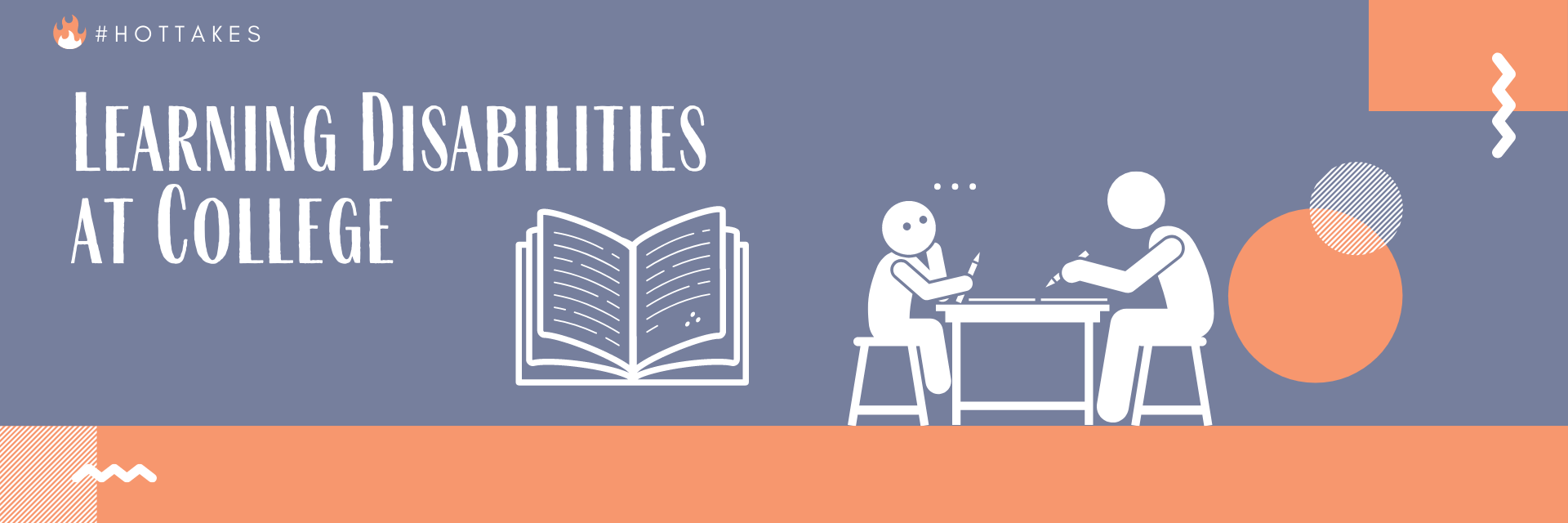
By: George Shenusay
What we label as learning or cognitive disabilities, like many other disabilities, are generally viewed as a disadvantage. When your happiness and personal success seem so directly related to your academic intelligence, having a learning/cognitive disability can be discouraging for students, and persons, of any age.
This world was not built with the disabled community in mind. Despite this I feel that we should strive to view learning disabilities through a similar lens as other disabilities, not as a lack of an ability but as a different set of abilities, even though they often force individuals to take a different approach to common challenges.
Objectively labeling sensory disabilities like blindness and deafness by calling members of these communities Blind or Deaf is a helpful practice because it simply states the condition of the person without insinuating that there is an inherent disadvantage in that person’s difference.
Ray Charles and Stevie Wonder were both superstars and innovators in the world of music. Although they were both blind, they rose to the top of their respective musical worlds and are still celebrated as some of the greatest musicians of all time. They both had to face the challenges of living in a world that was even more inaccessible to blind people than our world today, but they ultimately showed us that their blindness was not as much of a disability as it was a difference. In a society where sight seemed like a necessity, blindness was a difference that forced them to live their lives in a different way than most but it was not a difference that stopped them from being great.
When discussing the loss of senses it is important to talk about how that loss affects other parts of an individual's life. Hyperesthesia* is the phenomenon of heightened senses due to the permanent loss of one of the other senses. Researchers at Stanford have found that the human brain will reallocate synapses from the cortex of a lost sense to those of active senses. This shows that the loss of one of the senses has benefits that we may not be aware of.
The loss or lack of abilities doesn’t strictly disadvantage an individual but often has benefits. In the same way, I feel that while my learning disability has limited and frustrated me in academic environments such as UCLA, it has ultimately pushed me to pursue a multitude of other abilities that come more easily to me and that I enjoy more. I have become a much more creative and resourceful person because of these struggles. They have made me who I am, and sometimes I forget to be proud of that. It is easy to forget that school only trains and tests a small portion of ability and that you don’t have to be excellent at everything you do. Sometimes you just gotta take the L and move on to more important things.
I believe that the way we label these cognitive differences and talk about them is the main reason why students with these differences feel ostracised and embarrassed about their way of learning. Viewing special education as a disability, just as some people view blindness or deafness as a disability, is hurtful to the people in those communities. We should strive to use objective labels when talking about our differences and we should acknowledge these differences and offer help and resources to those who do not have the privilege to fit into our society as well as others.
Thank you.
Work Cited
Supersensors: how the loss of one sense impacts the others
https://neuroscience.stanford.edu/news/supersensors-how-loss-one-sense-impacts-others
Originally Posted: 4 August 2020

